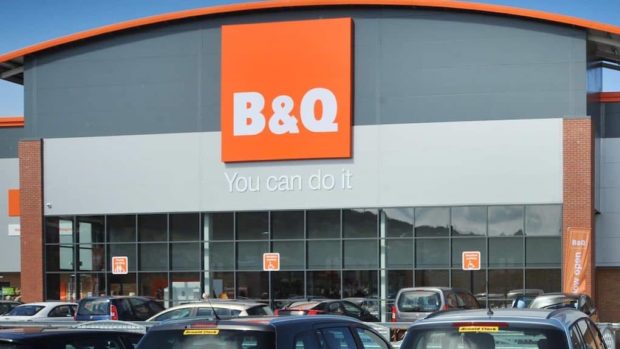
New research from the consumer spending team at money.co.uk predicts that online shopping this Black Friday could release 386,243 tonnes of carbon – the equivalent to 215,778 return flights between London and Sydney.
The team has launched this year’s Dirty Delivery Report which analyses the environmental credentials of the UK’s top delivery firms, the number of packages they are predicted to deliver, and the carbon produced as a result of each delivery.
The experts predict that, with sales estimated to fall by at least 10 per cent vs last year, Black Friday 2021 could be responsible for 386,243 tonnes of carbon emissions – down 11 per cent from last year’s estimate.
The slight drop in year on year figures highlights that despite lockdown restrictions easing, shoppers are continuing to spend online more than before the pandemic.
The report analysed eight delivery companies based on their carbon-conscious credentials and to determine which companies are the most dedicated to becoming more environmentally friendly.
The carbon-conscious credentials were determined by the following metrics:
1. Number of Click and Collect Locations /10
2. Satisfactory Score /10
3. Trustpilot reviews /10
4. Cycle Delivery /10
5. Walking Delivery /10
6. Number of Electric/Hybrid Vehicles /10
| Delivery Company | Click and Collect location score | Satisfactory score | Trustpilot score | Cycle Delivery Score | Walking Delivery Score | Electric/Hybrid Vehicles Score | Total /60 |
| Royal Mail | 9 | 7 | 7 | 2.5 | 10 | 8 | 43.5 |
| Amazon | 10 | 9 | 3 | 5 | 8 | 6 | 41 |
| DPD | 6 | 3 | 9 | 5 | 0 | 4 | 27 |
| Parcelforce | 8 | 8 | 5 | 0 | 0 | 5 | 26 |
| Hermes | 7 | 6 | 8 | 0 | 0 | 3 | 24 |
| UPS | 4 | 4 | 2 | 2.5 | 0 | 9 | 21.5 |
| DHL | 5 | 5 | 1 | 5 | 2.5 | 2 | 20.5 |
| FedEx | 3 | 5 | 1 | 2.5 | 0 | 7 | 18.5 |
Source: Money.co.uk
Of the eight delivery companies included in the report, Royal Mail was identified as the most carbon conscious delivery company, scoring 43.5 out of 60.
Royal Mail has 90,000 ‘feet on the street’ postal workers and have recently introduced 3,000 more electric vans to its fleet, a significant increase from the 300 plug-in vehicles in operation last year. More broadly, Royal Mail has been committed to reducing carbon emissions since 2005.
Eco-friendly shopping habits of UK consumers
When making an online purchasing decision, almost a quarter of shoppers (22.05 per cent) now factor in how carbon friendly the delivery will be – up 88.1 per cent when compared to the results of last year’s research.
Over a third of UK shoppers (34.25 per cent) consider carbon offsetting an essential part of their purchasing decision, equally as important to them as free delivery.
Almost two fifths (39.3 per cent) revealed they would be more likely to purchase through an online retailer who offers an eco-friendly delivery option.
Those aged 18-23 along with those aged 55+ are the most environmentally conscious shoppers. With the Gen Z demographic willing to pay the most to offset the carbon produced by their online purchases than any other age group, with the average mean amount emerging as £8.84.
Whereas, almost two in five (38.38 per cent) of UK shoppers aged 55+ would be more willing to shop with an online retailer if they offered a green or eco-friendly delivery option than if they didn’t.
Salman Haqqi, personal finance expert at money.co.uk, said:
“With more UK shoppers considering the environmental impact of their online delivery purchases than last year, it is clear that consumers are stepping up to the challenge of making their online shopping habits more eco-friendly.
“Our research shows that more than a third of UK shoppers now consider being able to offset their carbon equally as important to them, as obtaining free delivery, when shopping online. And while we do still undoubtedly live in a society accustomed to almost instant delivery, these figures suggest that many of us are now beginning to consider how our day-to-day lives have a wider impact on the environment.
“Interestingly, those in the Gen Z age group stated they would be willing to pay £8.84 on average, highlighting why this age group is also one of the largest demographics involved in climate protests.
“Over the past 12 months, the delivery companies analysed in our research have implemented significant changes in order to become more environmentally conscious. For example, Royal Mail has recently introduced 3,000 more electric vans to their fleet, a tenfold rise on the 300 plug-in vehicles it operated last year.
“UPS has also increased their electric vehicle fleet, with 10,000 electric vans set to be rolled out in the UK, Europe and the US between 2020 and 2024.
“Suggesting that consumers’ attitudes are potentially altering the way businesses operate, especially as our research suggests that 60.45 pe cent of UK shoppers would be less willing to make a purchase if an online retailer uses a particular delivery company.”








Share